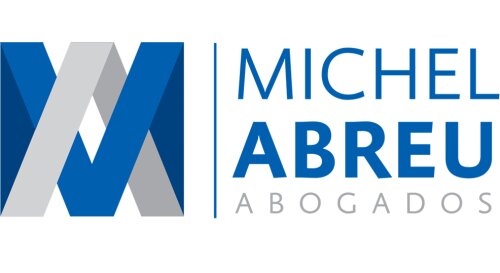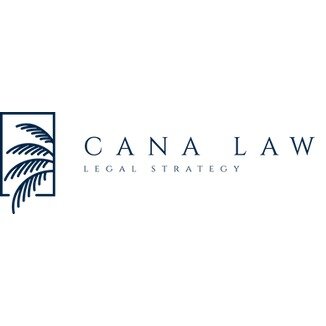Best Conveyancing Lawyers in Punta Cana
Share your needs with us, get contacted by law firms.
Free. Takes 2 min.
Free Guide to Hiring a Real Estate Lawyer
List of the best lawyers in Punta Cana, Dominican Republic
About Conveyancing Law in Punta Cana, Dominican Republic
Conveyancing in Punta Cana refers to the legal process by which ownership of real estate properties is transferred from one party to another. As a thriving destination for both tourism and investment, Punta Cana attracts many foreign buyers and local residents interested in purchasing property. Dominican property law establishes specific requirements for the legal transfer of property, which differ from practices commonly seen in other countries. The process involves due diligence, preparing documents, contract signing, and registration with the local authorities. Engaging a local conveyancing lawyer is vital to ensure a smooth and secure property transaction in Punta Cana.
Why You May Need a Lawyer
Conveyancing can be complex, especially in a foreign jurisdiction with unique rules and procedures. Hiring a lawyer in Punta Cana is important for several reasons:
- Reviewing title documents and ensuring property ownership is clear and uncontested
- Conducting due diligence to identify legal or financial encumbrances on the property
- Drafting, negotiating, and executing purchase agreements that protect your interests
- Handling interactions with government offices to verify taxes, fees, and permits are in order
- Providing translations and explanations of legal terms, especially for non-Spanish speakers
- Assisting with payments of transfer taxes, legal fees, and other associated costs
- Ensuring compliance with all local regulations and facilitating the registration of your ownership
Whether you are buying, selling, gifting, or inheriting property in Punta Cana, legal advice will help you avoid costly mistakes and secure your investment.
Local Laws Overview
Conveyancing in Punta Cana is governed primarily by the Dominican Civil Code and various property statutes. Here are key aspects to understand:
- Foreigners have the same legal rights as Dominicans to own real estate
- Property must be registered with the Title Registry (Registro de Títulos) to become legally binding
- Due diligence, including a complete title search, is essential to ensure there are no liens, mortgages, or legal disputes
- Purchasers must pay a property transfer tax, generally 3 percent of the assessed value
- The process typically starts with a Promise of Sale, followed by a notarized final sales contract
- All transactions must be formally registered for the change of ownership to take legal effect
- Notaries play a significant role in the signing and validation of property documents
- There may be municipal and community-specific regulations, such as those in project developments or gated communities
Understanding and following local procedures is crucial for a secure transaction.
Frequently Asked Questions
What is the first step when buying property in Punta Cana?
The first step is to identify a suitable property and engage a qualified local lawyer to conduct due diligence. This includes title searches, verifying ownership, and checking for liens or unpaid taxes.
Do foreigners need special permits to buy real estate in Punta Cana?
No. Foreigners enjoy the same property rights as Dominican nationals and do not need special permits to purchase property in Punta Cana or elsewhere in the country.
What taxes are involved in purchasing property?
The main tax is the property transfer tax, which is typically 3 percent of the official property value as determined by the local tax authorities. Other fees may include legal or notarial fees.
How long does the conveyancing process take?
The process can take several weeks to a few months, depending on the complexity of the transaction and the speed of government offices. Delays are common if there are title issues or missing documentation.
Is it necessary to be present in Punta Cana for the whole process?
No. You can assign a power of attorney to your lawyer to represent you in most aspects of the transaction if you are unable to be physically present.
What documents are required for conveyancing?
Some essential documents include the property title certificate, identification of both buyer and seller, tax certificates, and a notarized contract of sale.
How is the property title transferred?
After signing the final sales contract and settling taxes, the lawyer or notary files the documents with the Title Registry, which issues a new property title in the buyer’s name.
What protections are in place against fraud?
Strict legal protocols, the use of licensed lawyers, and public registration of titles help protect buyers against fraud. However, due diligence and verification by your lawyer are essential.
Are there restrictions on property ownership in certain locations?
While most properties can be freely owned, there may be restrictions in certain protected areas or near the shoreline. A local lawyer can confirm if your desired property is affected.
What happens if there is a dispute after the purchase?
If a dispute arises, legal proceedings can be initiated in local courts. Having legal representation experienced in Dominican property law is crucial for resolving such issues effectively.
Additional Resources
For further information and assistance, you may consult the following resources:
- Dominican Republic Title Registry Offices (Registro de Títulos)
- National Association of Real Estate Lawyers and Notaries
- Municipal Offices in Punta Cana and La Altagracia Province for local permits
- The Dominican Ministry of Tourism for foreign investment guidelines
- The Dominican Bar Association for reputable legal professionals
Next Steps
If you are planning a property transaction in Punta Cana, follow these steps:
- Consult with a local lawyer specializing in conveyancing and property law
- Gather any personal identification and documentation related to the property
- Have your lawyer perform due diligence and review all paperwork before signing
- Ensure all contracts are notarized and submitted to the appropriate registries
- Make necessary payments such as taxes, legal fees, and registration expenses
- Request regular updates from your lawyer and clarify any questions throughout the process
Taking the right legal steps from the beginning will help you avoid pitfalls and secure your property investment in Punta Cana.
Lawzana helps you find the best lawyers and law firms in Punta Cana through a curated and pre-screened list of qualified legal professionals. Our platform offers rankings and detailed profiles of attorneys and law firms, allowing you to compare based on practice areas, including Conveyancing, experience, and client feedback.
Each profile includes a description of the firm's areas of practice, client reviews, team members and partners, year of establishment, spoken languages, office locations, contact information, social media presence, and any published articles or resources. Most firms on our platform speak English and are experienced in both local and international legal matters.
Get a quote from top-rated law firms in Punta Cana, Dominican Republic — quickly, securely, and without unnecessary hassle.
Disclaimer:
The information provided on this page is for general informational purposes only and does not constitute legal advice. While we strive to ensure the accuracy and relevance of the content, legal information may change over time, and interpretations of the law can vary. You should always consult with a qualified legal professional for advice specific to your situation.
We disclaim all liability for actions taken or not taken based on the content of this page. If you believe any information is incorrect or outdated, please contact us, and we will review and update it where appropriate.














